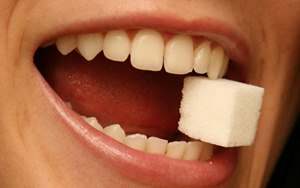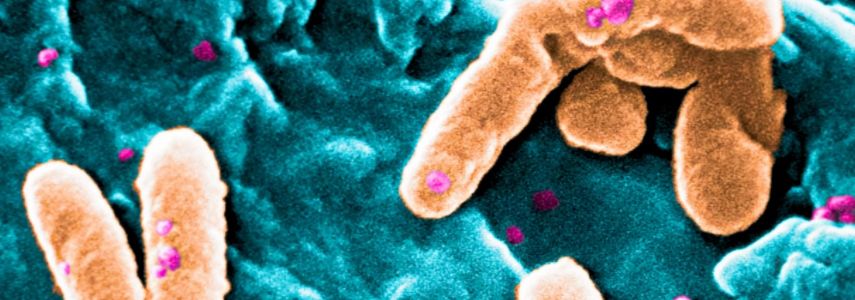The oral microbiota is composed of the microorganisms that populate our mouth. It has so far been possible to identify over 700 different species of bacteria in the oral cavity. Usually each individual hosts between 30 and 70, of different varieties.
A relationship regulated by three different exchange relationships can be established between our organism and bacteria:
- Symbiosis: in which both subjects (individual and bacteria) derive mutual benefits;
- Commensalism: when one species takes advantage of the other;
- Parasitism: only one species gains advantage, but at the same time creates damage to the other.
Most of the bacteria that populate our body have a neutral impact on our health, in other cases we can take advantage of their presence and in other cases still, an imbalance of all bacterial microorganisms, the oral microbiota in fact, can favor the onset of some pathologies.
How do pathogenic bacteria act in the oral microbiota?
 When bacteria have the opportunity to proliferate in our mouth, due to, for example, bad oral hygiene, after feeding on sugars or other food residues present in the oral cavity, they begin to secrete a substance called biofilm. The biofilm begins to accumulate on the surface of the tooth and on the gums forming the plaque.
When bacteria have the opportunity to proliferate in our mouth, due to, for example, bad oral hygiene, after feeding on sugars or other food residues present in the oral cavity, they begin to secrete a substance called biofilm. The biofilm begins to accumulate on the surface of the tooth and on the gums forming the plaque.
Bacterial plaque (also a biofilm) begins to form immediately after eating, if it is not removed it continues to accumulate, for this reason it is essential to brush your teeth thoroughly after each meal.
Why is balance in the oral microbiota important?
The oral microbiota is essential for maintaining the balance of the more general oral ecosystem. Maintaining balance means maintaining a mutually beneficial relationship between the bacterial species present in the oral cavity and the body’s immune defenses. Breaking this balance means giving bacteria the possibility of being supernumerary and colonizing some parts of the mouth, giving rise to caries or inflammation.
Present in a limited number, the bacteria that live in our mouth, in particular Streptococci, aerobic or optional anaerobic Gram-positive bacteria, help the body to break down the sugar molecules. If in the oral microbiota the number of bacteria varies, with a growth of the Streptococci, the pH of the saliva is reduced. An acid pH promotes the demineralization of tooth enamel and makes it more easily attacked by caries.
Anaerobic Gram-negative bacteria, on the other hand, tend to colonize the gums, going up to the gum pockets, forming the bacterial plaque that causes deep infections. In this case, the imbalance in the oral microbiota can lead to the onset of periodontitis.
To keep the oral microbiota in balance, synonymous with a healthy mouth, it is essential to brush your teeth after each meal and use dental floss at least once a day to remove food residues that may have got stuck between your teeth. It is also recommended to practice daily rinses with an antibacterial mouthwash.
In addition to proper oral hygiene, nutrition also plays its role, avoiding a diet rich in fats and sugars helps to fight the proliferation of bacteria, in the same way the consumption of foods that contain prebiotics (chicory, artichokes, asparagus .. .) help the activity of beneficial bacteria.
















